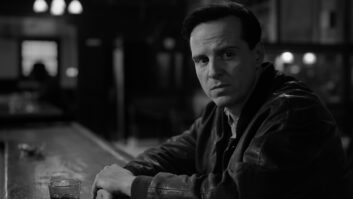
By Tien Tzuo, CEO, Zuora
This may come as news to many Americans, but Netflix has yet to take over the world. It obviously enjoys a huge competitive advantage here in the US, where its 36 million subscribers account for a third of peak broadband traffic, but it’s taking a cautiously staggered approach to expansion into foreign language markets. The vast majority of its content is in English, for starters, and negotiating foreign rights is difficult. Netflix has subscribers in 40 countries, but has yet to launch in Asia, Africa, Australia and New Zealand.
As a result, the overseas market has had time to prepare. In anticipation of Netflix’s arrival, international cable providers have been lowering their prices, unbundling their programming and launching an array of VoD services, a sector that has seen a huge amount of activity and consolidation lately. Brazil’s cable operator NET is shifting its entire content library to IP-enabled device delivery, for example, and the Dutch broadcaster RTL Nederland recently purchased its country’s second biggest VoD platform, Videoland.
Call it the Netflix Effect: overseas cable television companies are scrambling to innovate before Netflix arrives on their shores. And they have good reason to search for new solutions quickly, particularly when it comes to developing new programming. There’s a reason why it took HBO thirty years to develop a successful original content strategy, while Netflix did it in 18 months.
Unlike Hollywood executives, who lately seem to have been greenlighting every comic book in sight, the management at Netflix went forward with House of Cards based on a cold hard statistics. According to GigaOm, Netflix looks at 30 million ‘plays’ a day, including when you pause, rewind and fast forward, as well as four million user ratings, three million searches, geolocation data, viewing times, device information, and social media feedback.
With regards to House of Cards, the little-known British version had done notably well, and Netflix knew that David Fincher, Kevin Spacey and Robin Wright were all very popular with their audience. The Venn diagram was complete.
Jonathan Friedland, the company’s chief communications officer, told the New York Times that “because we have a direct relationship with consumers, we know what people like to watch and that helps us understand how big the interest is going to be for a given show. It gave us some confidence that we could find an audience for a show like House of Cards.”
That kind of ‘Betamax to IMAX’ consumer insight isn’t limited to Netflix, of course. Look at the success of Amazon, Uber and Nest. All of them are succeeding by offering products and services that are shaped in realtime by the massive amounts of behavioural data streaming through their servers. Other companies should pay heed.
If I was an overseas media company preparing for the imminent arrival of Netflix, I’d start paying immediate attention to the who, what, where, when and how of my customers’ viewing habits. The media companies of the future will succeed by using behavioural insight to pair popular topics with great creative professionals and dedicated audience channels, not by bundling 500 channels of filler.
Netflix launched in five European countries last week: France, Germany, Austria, Switzerland and Belgium. It will face stiff competition in all of those countries, particularly from France’s Canal Plus and Germany’s Sky Deutschland, who each have VoD streaming services of their own. It will also have to negotiate with a host of European broadband providers and telecoms with their own vested interests.
But they’re already planning their first French-language series, Marseille, a gritty crime drama set in the famous port city. I bet it’s going to be good. I’m looking forward to watching the subtitled version.







